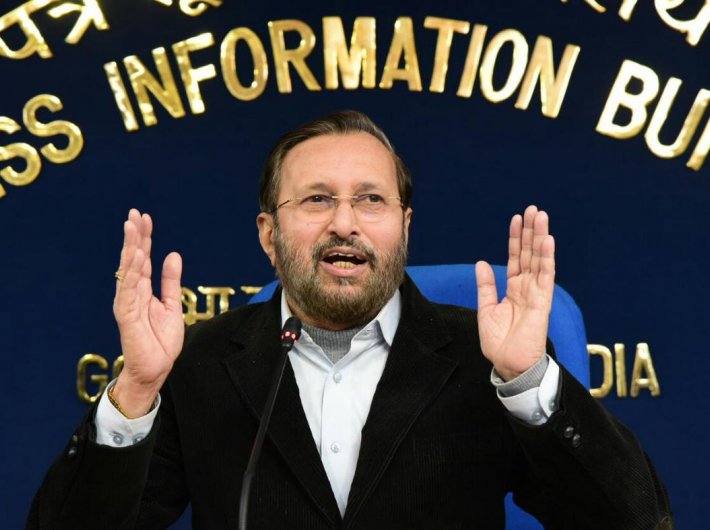World's largest administrative and statistical exercise begins amid protests over supposed citizenship criteria
The union cabinet, chaired by prime minister Narendra Modi, on Tuesday approved the proposal for conducting Census of India 2021 and updation of National Population Register (NPR), even as protests continued across the country amid lack of clarity on the citizenship question.
After the Citizenship (Amendment) Act was passed earlier this month, many expressed fears that an NRC updation on the basis of the criteria provided in that law can lead to a scramble for a variety of documents to prove identity, citizenship or legacy, and there might be widespread exclusion. The PM, however, on Sunday blamed the confusion and protests on the opposition, and maintained that there was no intention of updating the NRC now.
The decennial census will cost Rs. 8,754.23 crore, while updating NPR will cost Rs. 3,941.35 crore, an official note said. The census will cover the entire population in the country while NPR will cover all the population except in the state of Assam, where the national register of citizens (NRC) is in the process of updation, information and broadcasting minister Prakash Javdekar told the media.
The Indian Census is largest administrative and statistical exercise in the world. The next decennial census is due in 2021 and would be conducted in two phases: (a) house listing and housing census - April to September, 2020 and (b) population enumeration - 9th February to 28th February, 2021. The NPR will also be updated along with house listing and housing census except in Assam.
Decennial Population Census is being conducted in India synchronously since 1872 without break. Census 2021 will be 16th Census in the country and 8th after independence. Census is the biggest source of primary data at village, town and ward level providing micro level data on various parameters including Housing Condition; Amenities & Assets, Demography, Religion, SC & ST, Language, Literacy & Education, Economic Activity, Migration and Fertility. The Census Act, 1948 and the Census Rules, 1990 provide the legal framework for conduct of Census.
The National Population Register (NPR) was prepared in 2010 under the provisions of the Citizenship Act, 1955 and Citizenship Rules, 2003, which was subsequently updated in 2015 by seeding it with Aadhaar.
Among the other highlights of the coming exercise:
• 30 lakh field functionaries will complete this gigantic exercise of national importance, up from 28 lakh in 2011.
• Use of mobile app for data collection and the Central portal for monitoring purpose will ensure early release of Census data with improved quality.
• Data dissemination will be much better and in a user friendly way so that all the queries on required parameters for policy making will be made available on the click of a button.
• Census-as-a-service (CaaS) will deliver on-demand data to ministries in a clean, machine-readable and actionable format.
• Census is not a mere statistical exercise. The results will be made available to general public in a user-friendly manner.
• All the data would be put for use of all stakeholders and users including ministries, departments, state governments, research organisations etc.
• Data sharing to all, up to the lowest administrative unit. i.e., village/ward level.
• Block level data of enumeration to delimitation commission for delimitation of the parliamentary and assembly constituencies.
• Census data is a powerful tool for public policy when combined with other administrative or survey data. Census-as-a-Service (CaaS) will deliver on-demand data to various ministries/ state governments and other stakeholders in a user friendly, machine readable and actionable format with facilities like dashboard etc.
• One of the major outcomes of these two mammoth exercises will be direct as well as indirect employment generation across India including the far flung areas. This will be in addition to the payment of honorarium to Census functionaries for additional work undertaken by them for Census and NPR. Approximately 48,000 people will be engaged for about 2,900 days at the local levels. In another words, around 2.4 crore man-days employment would be generated. Further, the provision of technical manpower at Charge/ District/ State level will also result in capacity building as the nature of job will be related to data collection including digital mode and coordination. This will also help in future employment prospects of these persons.
Implementation strategy and targets:
• The Census process involves visiting each and every household and canvassing separate questionnaire for House listing and Housing Census and Population Enumeration.
• The enumerators, generally government teachers and appointed by the State Governments, will be doing the work of NPR along with the Census in addition to their regular duties.
• Other Census functionaries at Sub-district, District and State levels will also be appointed by the State/District Administration.
• New initiatives taken for the Census 2021 are:
i. Use of Mobile App for the first time for data collection.
ii. Census Monitoring & Management Portal as a single source for all officers/ officials involved in Census activities to provide multi language support.
iii. Facility of online self-enumeration for public during Population Enumeration phase. Code Directory to record the descriptive responses saving time in processing of data.
iv. Transfer of honorarium etc. to the Census functionaries for the Census & NPR related work directly to their bank accounts using Public Financial Management System (PFMS) and Direct Benefit Transfer (DBT) covering more than 60% of the total expenditure.
v. Qualitative training to 30 lakh field functionaries and utilising services of national/state level training institutes to prepare national and state level trainers.
